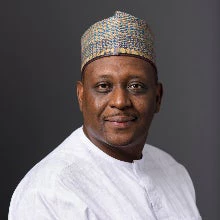
Thanks to pre-payment and risk pooling schemes for financing access to quality health care, many people in countries like Ghana, Colombia and Cambodia can afford to get treated when they are ill without having to borrow or being pushed into abject poverty.
It seems evident that everyone should have access to quality health services at affordable prices. But when faced with a medical emergency in their family, many people around the globe still face an additional woe: the soaring cost of medical treatment.
Out-of-pocket costs hit the poorest hardest
Every year, over 900 million people face severe hardship and 90 million are tipped into extreme poverty for seeking medical treatment. With the rising costs of out-of-pocket health care expenditures, currently estimated at half a trillion dollars globally, the number of people affected by this trend is expected to increase further.
We, at the World Bank Group, care deeply about improving not just access to Universal Health Coverage, but also its quality. Providing financial protection contributes to reducing inequality, a core principle of the Sustainable Development Agenda. It means providing quality health care even for those without deep pockets.
Unless the current situation is addressed, however, soaring out-of-pocket payments risk undermining global efforts to reduce poverty as this trend tends to hit the poorest people hardest.
Universal health coverage makes economic sense
Improving health outcomes through access to Universal Health Coverage also makes economic sense. When their citizens cannot afford effective medical treatment, countries lose valuable human capital. Furthermore, as one of the largest sectors of the global economy, health drives employment creation and provides 50 million jobs worldwide, most of them for women.
Not investing in sustainable and inclusive health strategies, on the other hand, carries considerable risks, including leaving countries vulnerable to the lasting social and economic impact of pandemics or health emergencies.
We need to close the financing gap
For the World Bank, accelerating progress toward Universal Health Coverage to provide financial protection for those most at risk is a priority. Over the past decade, IDA, the World Bank fund for poorest countries, has increased the share of its funding directed at health and nutrition by 60 percent, spending US$ 13.5 billion on delivery of key health services, such as immunization, for 330 million children and other health interventions that benefited more than 770 million people.
While crucial, IDA funding by itself is not going to be enough for low-income countries to achieve Universal Health Care. The most optimistic assessments suggest that the funding gap in the world’s 54 poorest countries – home to 1.5 billion people – will reach US$ 176 billion annually by 2030.
Unless urgent action is taken to mobilize more resources and close this gap, the situation will get worse. This requires intervention at several levels.
Interventions that work
Countries must invest more and increase the share of their domestic resources allocated to health. Given the reality of mixed health systems in most countries, they can engage the private sector through innovative models of finance and delivery of services. International health financing partners, such as a fully replenished IDA, the GFATM, GAVI, GFF, bilateral and private sector entities, should ensure that funding contributes to building sustainable national health systems that can deliver quality Universal Health Coverage. Compulsory pooled pre-payment mechanisms can play important roles and managed with greater efficiency to limit waste.
To achieve the best outcomes within available resources, the focus should be on providing quality, affordable primary care as a foundation. Investing in the prevention and early detection of medical conditions is more cost-effective than treating them at more advanced stages. Improving education, expanding social services, creating jobs and building strong and resilient communities also contribute to the improvement of health outcomes, reaffirming need for whole-of-government approaches.
It is also important that health coverage extends to essential drugs. The Global Monitoring Report on Financial Protection in Health 2019 showed that the high cost of essential medicines, including those used to treat diabetes, mental health issues and other non-communicable diseases, is a key driver of catastrophic out-of-pocket expenditures.
Progress is possible
Improving health outcomes while reducing the reliance on out-of-pocket payments is possible. World Bank studies of different Universal Health Coverage strategies adopted around the world show that progress has been achieved in several countries around the world.
With support from the World Bank, India has embarked on an ambitious program to eradicate tuberculosis by 2025 through detection and treatment at privately run health care facilities, which provide services to 80 percent of TB patients. Bangladesh has improved health outcomes by building a pluralistic system, involving the local pharmaceutical industry and deploying female community health workers. In Brazil, studies show that the Family Health Strategy is associated with reduced mortality.
These results demonstrate that by investing wisely and building cost-effective systems based on primary health care, countries can lay the foundations for a healthier, more prosperous future for individual citizens and entire nations. Each country must devise its own strategy to respond to the specific health needs of its population. To prevent the financial gap from growing wider and more people being pushed into poverty, political leaders must act, and they must act without delay.


Join the Conversation